8-12 July 2024
How is Artificial Intelligence reshaping journalism?
The contemporary information environment has been shaped by the proliferation and impact of digital platforms. Some of the consequences of this transformation are reflected in the weakening of the professional and economic standing of media and journalism, and in the exacerbation of disinformation. Now, journalism and informed citizenship confront yet another significant transformation driven by technology. In recent years, there has been a notable advancement in artificial intelligence (AI) and its widespread application across various sectors, including within the news and information industry. Among the most significant breakthroughs is the ease of use and wide accessibility of generative artificial intelligence, which has enabled almost anyone to rapidly generate content.
In the 12th edition of the CMPF Summer School for Journalists and Media Practitioners, we will delve into the implications of AI technology for journalism and the broader information landscape. How will it reshape the practice of journalism? What opportunities and challenges does it present for the profession? What are the ethical, philosophical, and societal implications, and how to safeguard humans in the loop?
Furthermore, we will explore the economics of journalism and the media in relation to AI. Notably, technology companies utilize news publishers’ content to train their large language models (LLMs) without providing adequate compensation, if any. How can AI be leveraged to enhance business opportunities and business processes for the media?
The diversity of sources and content online raises questions about the open nature of the Internet. Information integrity and countering foreign information manipulation and interference has become an important policy objective at the international level, including at the UN or G7/G20. With the open and free nature of the internet at stake, what are the key elements and implications for journalists to effectively perform their roles in the digital age?
The operations of tech companies are global, presenting challenges that transcend borders. However, there is also a strong regional dimension, evident in vulnerabilities, resilience, and policy responses. The European Union has been at the forefront of regulating digital technologies and addressing challenges to protect fundamental rights. Therefore, one day of the School will be dedicated to analysing key EU regulations such as the AI Act, the Digital Services Act, the Digital Markets Act, and other relevant policy instruments.
This edition of the Summer School offers the opportunity for journalists and media practitioners to learn, discuss, and share their experiences, ideas, and viewpoints. The aim is to enrich the experience for all participants and advance their understanding of critical phenomena and processes affecting journalism and informed citizenship more broadly. The programme is structured around keynote presentations by distinguished experts, followed by interactive sessions.
Key topics
- AI and journalism: practices within and beyond journalism
- Humans in the loop and safety of journalists
- AI and media business: copyright, innovation, transformation, monetisation
- EU Regulatory framework and global standards: focus on Artificial Intelligence Act, Digital Services Act, Digital Markets Act, Code of Practice on Disinformation, European Media Freedom Act
- Key international developments in Internet governance and their potential impact on the future of journalism and the media sector
- Ethics of AI and ethics of AI use in journalism
Learning outcomes
- Shared knowledge of global and European trends affecting journalism, informed citizenship, and democracy;
- Up-to-date overview of the technology and practice trends, legislative changes and legal principles governing content online;
- Strategies for the development of new business models in journalism;
- Newest trends in the journalistic practice, analysis of the state of play of pluralism and freedom in the digital media environment;
- Interactive session proceedings;
- Facilitating networking among participants and among participants and speakers.
A Certificate will be awarded to participants who successfully complete the training course.
Who can apply?
The Summer School is open to early and mid-career journalists and other stakeholders in the news industry. Our aim is to gather participants from a variety of countries and backgrounds. The CMPF will select participants based on the information provided in the application form, assess the quality of applications, and take into account diversity criteria. The working language of the Summer School is English.
Scholarships
We offer up to 36 scholarships within the following categories and conditions:
CMPF Summer School Programme scholarships – 20 scholarships
Available to applicants from countries participating in the Creative Europe programme, namely:
- The EU27;
- Acceding countries, candidate countries and potential candidates participating in Creative Europe: Albania, Bosnia and Herzegovina, Georgia, Kosovo, Montenegro, North Macedonia, Serbia, Ukraine;
- European Neighbourhood Policy countries participating in Creative Europe: Armenia, Tunisia;
- EFTA countries which are part of the European Economic Area: Iceland, Norway, Lichtenstein.
The CMPF scholarship covers travel expenses up to an established ceiling, accommodation for 5 nights, tuition fees, all course materials, access to the EUI library, Wi-Fi access at the EUI, social activities, lunches, and coffee breaks on lecture days.
Widening Countries Programme scholarships – up to 6 scholarships
Available to applicants from the Widening Countries. The scholarship will contribute 600 euros to cover travel expenses and accommodation for 5 nights. In addition, tuition fees, all course materials, access to the EUI library, Wi-Fi access at the EUI, social activities, lunches, and coffee breaks on lecture days, one cocktail, one dinner, will be offered by the Programme.
The EUI Widening Europe Programme, backed by contributions from the European Union and EUI Contracting States, is designed to strengthen internationalisation, competitiveness, and quality in research in the so-called Widening countries, and thus fostering a more cohesive European Higher Education Area and Research areas.
Global scholarships – up to 10 scholarships
Available to applicants from Africa, Asia-Pacific and Latin America, provided by the European Union in the framework of the Global Initiative on the Future of the Internet. The scholarship is intended for travel expenses (economy class fare), visas, accommodation for 6 nights, tuition fees, all course materials, access to the EUI library, Wi-Fi access at the EUI, social activities, lunches and coffee breaks on lecture days. For more information about global scholarships, applicants can contact Dr Patryk Pawlak at patryk.pawlak@eui.eu
All scholarships are awarded by application only. In the registration form, you will be asked to select the category of scholarship you apply to. Scholarships are not intended for participants who can receive funds from their own institutions.
The selection will take into account the candidate’s professional profile, language skills and additional competencies, such as having an international profile, work experience, certificates and other achievements.
Please note that the CMPF can provide an invitation letter to the selected participants but cannot assist with the Visa application process or expenses for travel documents.

Confirmed speakers

Elisabetta Airaghi
Elisabetta Airaghi is the Project Manager of the Centre for a Digital Society and the Centre for Media Pluralism and Freedom of the European University Institute.
Before joining the EUI, from 2010 to 2016 she worked as an EU Project Manager for consultancy firms in Brussels active in the fields of international development and R&I. From 2016 to 2022, she was Senior Consultant and Project Manager in one of the European leading research centres specialized in policy design for the cultural and creative sectors including media, KEA European Affairs. Elisabetta holds a Laurea in Economics and Management for Arts, Culture and Communication and a MSc in Economics and Management of Public Administration and International Institutions from Bocconi University, Milan.
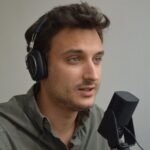
Luca Bertuzzi
Luca Bertuzzi is Senior AI Correspondent at MLex.
Before joining MLex in Brussels, Luca worked as the Technology Editor at EURACTIV, where he oversaw an international team of four reporters based in Brussels, Paris, and Berlin. Luca’s work has been published in la Repubblica, Tagesspiegel, and Tech.eu. For his reporting, he received the 2024 AI Policy Leader Award.

Konrad Bleyer-Simon
Konrad Bleyer-Simon is a Research Associate at the Centre for Media Pluralism and Media Freedom (European University Institute) and works on the Policy Analysis and Research task of EDMO. He’s involved in EDMO’s work on structural indicators and chairs the EDMO Hubs Policy and Analysis Working Group. He holds a doctoral degree from the Human Rights Under Pressure joint program of the Freie Universität Berlin and the Hebrew University in Jerusalem as well as a Master of International Affairs degree from Columbia University. Prior to working at CMPF/EDMO, he worked for NGOs and news media in Berlin, Brussels, Bishkek and Budapest. In his research he looks at media and anti-disinformation policymaking, media capture, as well as new revenue models for news media.
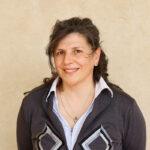
Elda Brogi
Elda Brogi is Part-time Professor at the European University Institute and Scientific Coordinator of the Centre for Media Pluralism and Media Freedom. Member of EDMO, European Digital Media Observatory, and former member of EDMO Executive Board. Her main interests span Constitutional, European, Media and Internet law. Elda has a long-standing experience as a member of the expert committees of the Council of Europe. She is currently a member of the Committee of experts on increasing resilience of the media (MSI-RES). In 2022, she joined the Research Policy Network on Media Plurality of the Centre for Economic Policy Research (CEPR).

Justin-Casimir Braun
Justin is a data journalist with the non-profit newsroom Lighthouse Reports and an incoming PhD student in Political Science at Stanford University. His work focuses on the societal impact of automated systems and artificial intelligence.
In the past, Justin has worked with AlgorithmWatch e.V., a German digital rights organization, and various grassroots NGOs, documenting human rights violations against migrants along the the Balkan Route. He holds a bachelor degree in International Relations from Stanford University.

Roberta Carlini
Roberta Carlini is a part-time assistant professor at the EUI. Roberta joined the Centre for Media Pluralism and Media Freedom (CMPF) and the Centre for a Digital Society (CDS), based at the Schuman Centre of the EUI, after a career as journalist, specialised in economic and social issues. Her research in media studies focuses on the economic dimension of media pluralism and media freedom. At CMPF, Roberta contributes to the project ‘Monitoring media pluralism in the digital era’ (Media Pluralism Monitor), where she coordinates the Market Plurality area, focusing on media ownership concentration, media sustainability, digital markets, working conditions of journalists, public support to the media sector, editorial independence from commercial and owners’ influence. She co-authored the national report of MPM for Italy in the years 2020-2023. In 2022, she contributed to the Study on Media Plurality and Diversity Online, with a chapter on the online advertising market.
Roberta holds a degree in Law (University of Rome La Sapienza) and a Master’s degree in Public Finance at Centro Nazionale Ricerche (CNR). As a journalist, she covered economy and public finance, job market, media, education, social and gender issues for several Italian media; she has been deputy editor-in-chief of the newspaper Il Manifesto, and of the weekly magazine Pagina 99. She makes regular contributions for the magazine Internazionale and for Rai Radio Tre. She co-founded inGenere.it, a web-magazine disseminating knowledge and expertise on Gender and Economics, and is a consultant for Fondazione Giacomo Brodolini. As an essayist, she has written several books, most recently ‘Come siamo cambiati. Gli italiani e la crisi’ (Laterza, 2015).

Louis Dreyfus
Louis Dreyfus is CEO of Le Monde Group (Le Monde, Télérama, La Vie, Courrier international, Le HuffPost France, Le Monde diplomatique), France’s leading independent media group. He started his career in New York in 1993 where he worked for six years as international controller with Hachette Filipacchi Magazines and its 37 magazines published at the time in the US. As such, he contributed to the launch of George Magazine, the acquisition of Première and Mirabella and the development of titles such as Elle, Car & Driver and Woman’s Day.
During the same period, Mr Dreyfus was also the US Correspondent of the French edition of Première Magazine. He then moved to Marseille (France) where he worked as CFO of the regional daily La Provence before becoming successively, from 2001 to 2008, CEO of Libération (French national daily), CEO of Le Nouvel Observateur (weekly magazine), and CEO of Les Editions Indépendantes (publishing company of the weekly Les Inrockuptibles). Mr Dreyfus is an alumnus of the London School of Economics (London) and graduated from HEC graduate school of management (Paris). He is also chairman of L’Ecole Supérieure de Journalisme de Lille, the leading graduate school of journalism in France, and a board member of Agence France-Presse.

Paula Gori
Paula Gori is the Secretary-General and Coordinator of EDMO. She joined the School of Transnational Governance at the European University Institute in 2017 where she is a member of the management team. Prior she was the Coordinator of the Florence School of Regulation – Communications and Media, which offers training, policy and research activities on electronic communications regulation and competition and she collaborated with the Centre for Media Pluralism and Media Freedom, which she coordinated during the initial set-up phase back in 2012. She was for several years the Scientific Coordinator of the Annual Conference on Postal and Delivery Economics and she is one of the authors of the report for the European Commission on European Union competences in respect of media pluralism and media freedom. Paula has a legal background and is a qualified civil mediator.

Herman Grech
Herman Grech is editor-in-chief of Times of Malta, the country’s largest news organisation. With 27 years of experience spanning print, TV and online journalism, Herman is a multiple award-winning journalist.
Since assuming the role of editor, Times of Malta has seen unprecedented growth in readership and audience engagement and revamped the editorial structure. A contributor to organisations like BBC and Al Jazeera, Herman is a vocal advocate for media freedom and human rights. He is also a theatre director and playwright, with his latest play – They Blew Her Up – zooming in on the murder of journalist Daphne Caruana Galizia, a case he investigated.

Erik Jones
Erik Jones is Director of the Robert Schuman Centre for Advanced Studies at the European University Institute. Professor Jones is author of The Politics of Economic and Monetary Union (2002), Economic Adjustment and Political Transformation in Small States (2008), Weary Policeman: American Power in an Age of Austerity (2012, with Dana H. Allin), and The Year the European Crisis Ended (2014). He is editor or co-editor of books and special issues of journals on topics related to European politics and political economy including The Oxford Handbook of the European Union (2012) and The Oxford Handbook of Italian Politics (2015). Professor Jones is co-editor of Government & Opposition and a contributing editor of Survival. His commentary has appeared in the Financial Times, the New York Times, and other major newspapers and magazines across Europe and North America.
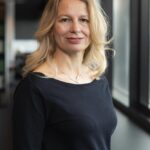
Natali Helberger
Natali is Distinguished University Professor of Law and Digital Technology with a special focus on AI at the University of Amsterdam and affiliated with the Institute for Information Law (IViR), one of the leading information law institutes worldwide. Her research over the past five years has focused on how AI and ADS are transforming society and their implications for law and governance. Together with Claes de Vreese, Helberger founded the Research Priority Area Information, Communication, and the Data Society (www.uva-icds.net) at the University of Amsterdam, which has pioneered methods to study the societal impact of digital technologies and shaped the international discussion on filter bubbles, platform governance, data-driven communication, and political micro-targeting. She is one of the founders of Human(e) AI (www.humane-ai.nl), a university-wide research program and hub for researchers from the social sciences, humanities, and computer science to advance a societal perspective on AI, and iniator of the Humane AI cross-faculty course. At the Faculty of Law of the University of Amsterdam, Helberger is also one of the founders and leaders of the Digital Transformation Initiative to stimulate research into legal aspects of AI across the different fields of law and train new talent. Since 2021, Helberger is also the Director of the AI, Media & Democracy Lab, and since 2022 the Scientific Director of the Algosoc (Public Values in the Algorithmic Society) Gravitation Consortium. An important focus of the Algosoc program is to mentor and train a next generation of interdisciplinary researchers.
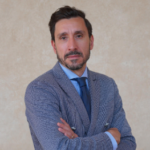
Claudio Mazzetti
Since April 2023 Claudio Mazzetti is the EUI Coordinator for Development where he acts as subject matter expert for fundraising with particular emphasis for flagships initiatives such as The European Media and Information Fund (EMIF) .
Before, he was the Team Leader for the Research Management at the Robert Schuman Centre for advanced Studies (RSC) where he supervised and coordinated the work of the team of all RSC Project Managers (5 PMs with almost 100 externally funded projects) and advised the Director on the overall fundraising strategy of the Schuman Centre. In 2012 he was the Funding Manager of the Centre for Media Pluralism and Media Freedom – CMPF at the RSC and he managed the CMPF activities and projects uninterruptedly from 2012 until 2023. He holds a Laurea in History from the University of Florence and a master’s degree in International Politics from University of Paris XI. He worked for the Italian Ministry of Foreign Affairs in Kosovo and for the European Parliament in Luxembourg. From 2004 to 2009 he worked in Brussels for one of the European leading consultancy firm, AESA where he acted as Head of the Social Department. Since January 2010 he has worked at the EUI. Overall, he has more than 20 years of relevant professional experience.

Iva Nenadić
Iva Nenadić, PhD in Communication Science, studies media pluralism in the context of content curation, ranking and moderation policies of online platforms, democratic implications such policies may have, and related regulatory interventions. At the EUI’s Centre for Media Pluralism and Media Freedom, for almost a decade, she has been involved in designing and implementation of the Media Pluralism Monitor. She also takes part in the Management Committee of the European Digital Media Observatory, leading the research on structural indicators for the Code of Practice on Disinformation. Iva is also an Assistant Professor in Journalism at the University of Zagreb’s Faculty of Political Science, where she teaches courses in media and digital policy, and computational propaganda. In 2021/2022 she was a Fulbright Visiting Scholar at the University of North Carolina in Chapel Hill, where she maintains affiliation with the Center for Information, Technology, and Public Life (CITAP). Currently, she also serves as a member of the Committee of Experts on the impacts of generative artificial intelligence for freedom of expression (MSI-AI) at the Council of Europe.

Patryk Pawlak
Patryk Pawlak is a Part-Time Professor at the Robert Schuman Centre and Project Director for the Global Initiative on the Future of the Internet (GIFI) – a two-year project funded by the European Union. His fields of expertise are global governance of digital and cyber issues, the impact of technology on foreign and security policy, and the European Union’s cyber and digital diplomacy. His current research focuses on how cyber and digital policies are shaping multilateral system and the EU’s role in this process.
Pawlak advises and consults for governments, international organisations and various EU initiatives on cyber diplomacy. He has been involved in multilateral cyber-related processes at the United Nations and bilateral consultations between the EU and partner countries (e.g. Brazil, China, India, South Korea, Japan, United States) and other regional organisations (e.g. Organisation of American States, the Association of Southeast Asian Nations, the Organisation for Security and Co-operation in Europe). In addition to his work on responsible state behaviour in cyberspace, Dr Pawlak is a recognised expert on cyber capacity building policy. He co-authored (with Nayia Barmpaliou) the Operational Guidance for EU’s International Cooperation on Cyber Capacity Building for the European Commission. He also served as a co-chair of the Advisory Board of the Global Forum on Cyber Expertise and chair of the Program Advisory Team for the Global Conference on Cyber Capacity Building.

Urbano Reviglio
Urbano Reviglio is a Research Associate at the Centre for Media Pluralism and Media Freedom (CMPF). He holds a Ph.D. in Law, Science, and Technology from the ERASMUS Mundus project LAST-JD, coordinated by the University of Bologna. His interests are mainly related to the internet and its governance, particularly issues concerning privacy, social media content moderation and curation, and, more broadly, news consumption and the formation of public opinion.
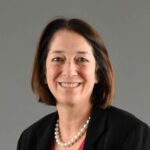
Anya Schiffrin
Anya Schiffrin is the director of the Technology, Media, and Communications specialization at Columbia University’s School of International and Public Affairs and a senior lecturer who teaches on global media, innovation and human rights. She writes on journalism and development, investigative reporting in the global south and has published extensively over the last decade on the media in Africa. More recently she has become focused on solutions to the problem of online disinformation, earning her PhD (with honors) on the topic from the University of Navarra. She is the editor of Women in the Digital World, (Routledge, April 2023) Global Muckraking: 100 Years of Investigative Reporting from Around the World (New Press, 2014) and African Muckraking: 75 years of Investigative journalism from Africa (Jakana 2017) She is the editor of Media Capture: How Money, Digital Platforms and Governments Control the News (Columbia University Press 2021.) Dr. Schiffrin’s work with economist Haaris Mateen on the valuation of news has been cited in the Atlantic, Financial Times, Los Angeles Times, New York Times, Washington Post and many other publications. She is a leading thinker and commentator on AI and publishing, media sustainability as well as mis/disinformation and media impact.

Sofia Verza
Sofia Verza is Research Associate at the Centre for Media Pluralism and Media Freedom. In 2023 and 2024, she coordinated the research task of the Local Media for Democracy (LM4D) project. In 2021 and 2022 she was the Project Coordinator of the Study on media plurality and diversity online. Previous to joining the CMPF, she was a Visiting Researcher at Columbia University (NYC), Bilgi University (Istanbul) and the University of Antwerp. Her research focuses on the relationship between the media and policy making, national security and freedom of expression, especially in Italy and Turkey. She has collaborated with Osservatorio Balcani e Caucaso Transeuropa (OBCT), the Media Freedom Rapid Response (MFRR) consortium, the European Centre for Press and Media Freedom (ECPMF) and Columbia University’s Global Freedom of Expression project. Sofia holds a PhD in Political Science from the University of Perugia and an MA in Law from the University of Trento.
